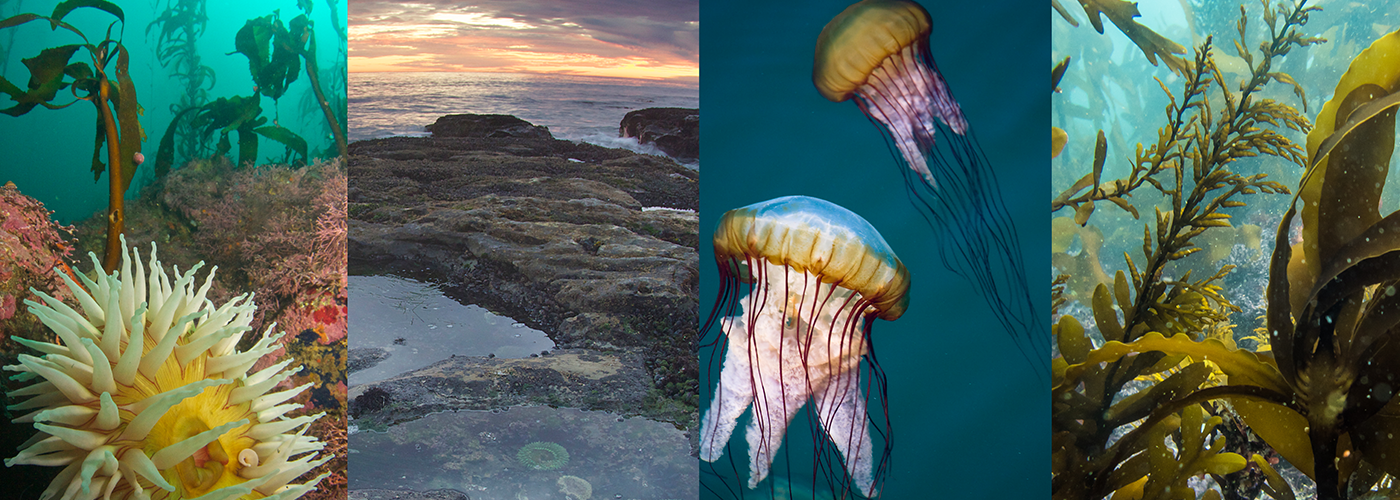Prospective Students

The Invertebrate Ecology lab plans to accept 1-2 students for the 2024-2025 academic school year, but please note that funding is not guaranteed. Prospective students are encouraged to write to Amanda prior to applying, about their interests and why they are considering the program and her lab at MLML. She is excited to take on self-motivated students with a clear picture of why they wish to join this lab, and with at least one well-planned research idea/plan. Students of the Invertebrate Ecology lab are encouraged to explore their own interests in developing a research project; however, Dr. Kahn cannot be a good advisor unless there is something that she can advise upon. Therefore, there should be some connection/overlap between Dr. Kahn's expertise and the applicant's research interest (although that can be in terms of methodology/approach, habitat, animal/feeding type, or research question).
Formal interviews will be scheduled with qualified candidates either before or after submission of a completed application. All applications will be considered equally, but please be advised that interview positions are limited and early submissions are encouraged. If you have any specific questions regarding project ideas or about the lab, please feel free to reach out before submitting an application.
Program overview:
Many answers to your questions about the program can be found on the MLML website. The most up-to-date information about the program can be found on the Graduate Program website, which includes information about minimum qualifications for applicants, degree requirements, application procedures, procedures for registering for a course, and a great FAQ section.
Students apply to MLML and also one of the consortium CSU campuses. Invertebrate Ecology Lab students are expected to have a good undergraduate GPA and good letters of recommendation. Having some research experience is a good idea, and can make up for less-than-perfect grades and test scores. Prospective students are encouraged to read through the Invertebrate Ecology Lab website and its current projects to get an idea of whether their interests align with current projects of the group. Graduate students spend most, if not all, of their time in residence at MLML and will likely never need to visit their home campus except perhaps to turn in their thesis. To work directly with Dr. Kahn, students should enroll through SJSU as a home campus.
MLML is focused on graduate student training with strong emphasis on a research-based thesis. The program is a significant time commitment in that it normally takes students 3-4 years to complete the degree. There are two years of coursework and a thesis project that is expected to result in 1-2 research publications. While this is longer than most Master's programs, the degree from MLML is highly regarded. Students graduating with the training provided by MLML are well prepared for PhD research or entering a professional scientific career. Much of the coursework and lab exercises include field components and hands-on learning.
Funding:
Student funding is one of the most challenging aspects of MLML. While there are assistantships available for some courses, not everyone can get a slot in a course when they need funding (unlike many larger programs). I am working very hard to try to secure funding for students by writing grant proposals for research each year, but currently there are no guarantees that I will be able to financially support your involvement in the MLML program.
If research funding and TAships are not available, there are other sources of support in graduate school. All applicants should apply for fellowships to try to be self-funded such as the NSF graduate student research fellowship or Nancy Foster Scholarship Program, both of which provide tuition support and a stipend. In addition, many students work in some of the affiliated research labs at MLML, while others get jobs or internships with the many marine organizations in Monterey. Still others must find employment outside of the lab. It is my hope to reduce this need as much as possible through grant-supported research assistantships.
Interested in applying?
If you are interested in joining the Invertebrate Ecology Lab, please look through the lab website and contact Dr. Kahn with:
- A brief description of your relevant background (curriculum vitae);
- Copies of your undergraduate transcripts, and/or summary of your work experience if you've been out of school for a while;
- A brief letter describing research interests and why you are interested in joining the Invertebrate Ecology Lab

